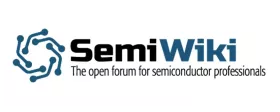The Business Case for Algorithmic Memories
Economic considerations are a primary driver in determining which technology solutions will be selected, and how they will be implemented in a company’s design environment. In the process of developing Memoir’s Algorithmic Memory technology and our Renaissance product line, we have held fast to two basic premises: Our technology and products have to work as promised, and we have to reduce the risk and total cost of development for our customers. The reality is that the entire semiconductor ecosystem needs to be approached in a new way. Gone are the days when ROI was a second or even third tier concern. Gone, also, are the days when multiple iterations of a product are not only tolerated, they are actually accepted as the norm.
To read the full article, click here
Related Semiconductor IP
- Ultra-Low-Power LPDDR3/LPDDR2/DDR3L Combo Subsystem
- Parameterizable compact BCH codec
- 1G BASE-T Ethernet Verification IP
- Network-on-Chip (NoC)
- Microsecond Channel (MSC/MSC-Plus) Controller
Related Blogs
- Real-Time Intelligence for Physical AI at the Edge
- Introducing the MIPS Atlas Portfolio for Physical AI
- The Growing Importance of PVT Monitoring for Silicon Lifecycle Management
- Securing The Road Ahead: MACsec Compliant For Automotive Use
Latest Blogs
- Physical AI at the Edge: A New Chapter in Device Intelligence
- Rivian’s autonomy breakthrough built with Arm: the compute foundation for the rise of physical AI
- AV1 Image File Format Specification Gets an Upgrade with AVIF v1.2.0
- Industry’s First End-to-End eUSB2V2 Demo for Edge AI and AI PCs at CES
- Integrating Post-Quantum Cryptography (PQC) on Arty-Z7
